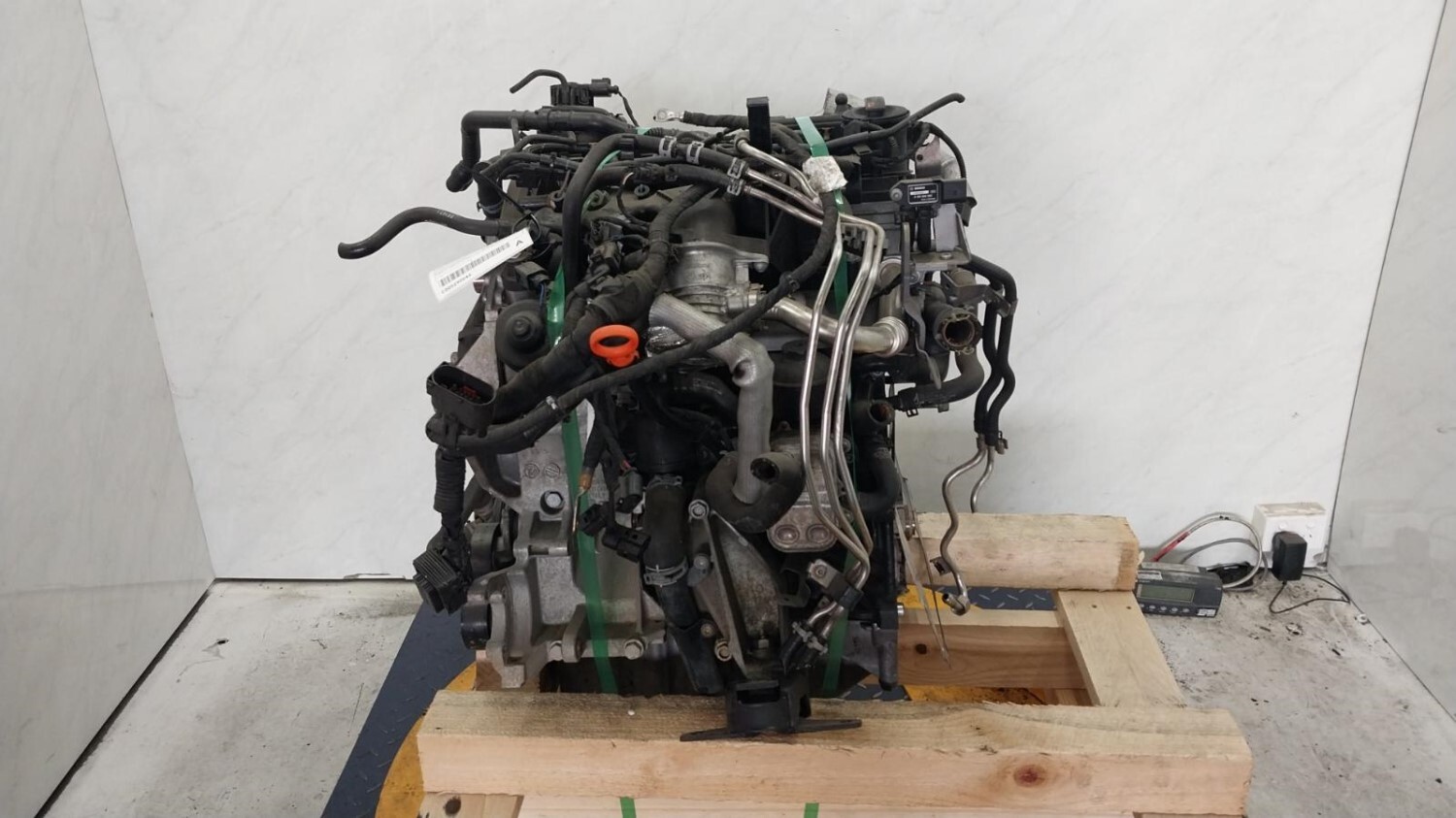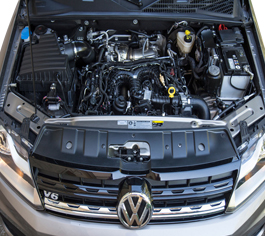Where to Discover the Most Trusted Amarok Engine for Sale-- Leading Distributors and Alternatives
Where to Discover the Most Trusted Amarok Engine for Sale-- Leading Distributors and Alternatives
Blog Article
Navigating the Refine of Engine Selection: Trick Aspects to Consider
The procedure of engine choice is a complex undertaking that demands mindful assessment of a number of critical elements to make sure placement with operational goals. Efficiency requirements, fuel efficiency, and financial restrictions are just the start; factors to consider around ecological impact and maintenance support play an essential role in the decision-making framework.
Performance Needs
When picking an engine, it is vital to establish clear performance requirements that line up with the designated application. Performance needs incorporate an array of elements, consisting of power output, torque attributes, and responsiveness, which must be customized to the particular needs of the lorry or equipment concerned.
Power output, generally determined in horse power, establishes the engine's capacity to thrust a lorry or do a task effectively. Torque, on the other hand, is vital for applications calling for solid first acceleration or heavy training capacities. An understanding of the operational environment is likewise crucial; as an example, engines developed for off-road applications may require different efficiency features contrasted to those planned for freeway usage.
In addition, take into consideration the operational tons and obligation cycle, as these aspects influence the engine's longevity and reliability. In high-load situations, a robust engine style might be necessary to prevent premature wear or failure. Furthermore, efficiency requirements need to also include factors to consider for emission criteria and regulatory compliance, especially in areas with strict ecological guidelines. By defining these efficiency specifications early in the choice process, stakeholders can make informed choices that boost total operational effectiveness and performance.
Gas Efficiency Factors To Consider
While performance demands are critical, fuel performance is just as vital in the engine choice procedure, as it directly influences operating expense and ecological sustainability. Fuel-efficient engines consume much less gas per system of job performed, which not only minimizes overall expense yet additionally decreases greenhouse gas discharges. As organizations progressively prioritize sustainability, choosing an engine that maximizes fuel performance can improve business duty and conformity with environmental laws.
When evaluating fuel efficiency, it is crucial to take into consideration the engine's layout and modern technology - amarok engine for sale. Advancements such as turbocharging, straight gas shot, and crossbreed systems can substantially boost gas economy. Furthermore, recognizing the operating problems and responsibility cycles of the engine application is crucial; engines may perform in a different way under differing loads and rates
In addition, suppliers often give fuel intake information that can be utilized to contrast different engine alternatives. It is advisable to evaluate these specifications in real-world situations to make sure accuracy. Finally, the type of fuel used can additionally influence fuel effectiveness; alternate gas may supply much better performance and reduced discharges. In summary, fuel performance is a multi-faceted consideration that calls for complete analysis during the engine selection procedure.
Budget Plan and Cost Analysis
Spending plan and price evaluation serves as a critical part in the engine option procedure, influencing both temporary financial investments and long-term operational costs. When examining possible engines, it is necessary to think about not only the preliminary purchase price but additionally the overall cost of ownership, which includes installment, upkeep, fuel intake, and prospective downtime.
An extensive analysis must start with the ahead of time expenses associated with the engine, including required modifications or ancillary tools. Nonetheless, focusing solely on preliminary expenses might bring about illinformed decisions. Reviewing operating expense over the engine's life-span is equally essential, as more pricey engines may use remarkable gas performance or decreased maintenance requirements, ultimately bring about find this cost savings.

Environmental Impact Elements
Comprehending environmental effect factors is important in the engine choice procedure, as sustainability factors to consider have come to be progressively vital for both governing compliance and company responsibility. Organizations must assess the emissions generated by numerous engine kinds, consisting of co2, nitrogen oxides, particle matter, and unburned hydrocarbons. These emissions add dramatically to air contamination and environment modification, requiring a cautious evaluation of the engine's eco-friendly impact.
Furthermore, gas type plays an important role in environmental impact. Engines powered by renewable energy resources, such as biofuels or hydrogen, often tend to have a lower visit this web-site environmental influence compared to standard nonrenewable fuel sources. In addition, the lifecycle assessment of the engine, from production through operation to disposal, must be taken into consideration to recognize the complete scope of its environmental effects.

Maintenance and Support Options
When choosing an engine, the availability of upkeep and assistance options is an essential factor to consider that can dramatically affect functional performance and long life. Comprehensive upkeep plans make certain that the engine runs at peak efficiency and decreases unanticipated downtimes. It is important to assess the producer's assistance network, including the availability of certified specialists and service centers.
Examining the accessibility of extra parts is also important. A trustworthy supply chain for components can minimize preparations for repairs and upkeep, therefore enhancing overall productivity. In addition, think about the ease of acquiring technological documentation and training sources, which are vital for making certain that employees are well-appointed to deal with regular and emergency circumstances.
An additional essential factor is the warranty and solution arrangements provided by the producer. These agreements can offer satisfaction and financial security versus unexpected problems. Ultimately, an aggressive technique to upkeep and support not just expands the life of the engine but likewise contributes to the overall success of the operation. Cautious consideration of these facets will certainly bring about informed choices that align with functional goals and budget plans.
Verdict
In final thought, the procedure of engine option requires a thorough assessment of various critical elements, including performance needs, fuel effectiveness, spending plan restrictions, ecological influence, and upkeep assistance. By diligently examining these aspects, informed choices can be made that line up with functional purposes and sustainability goals. Ultimately, a critical method to engine option will ensure optimum performance and durability while resolving economic and environmental factors to consider successfully.
While performance demands are important, gas efficiency is equally vital in the engine selection procedure, as it straight influences operating prices and ecological sustainability. As companies increasingly focus on sustainability, choosing an engine that optimizes gas performance can enhance corporate responsibility and compliance with environmental regulations.
Furthermore, comprehending the operating problems and obligation cycles of the engine application is essential; engines might execute in different official site ways under differing speeds and tons. (amarok engine for sale)
Assessing operating prices over the engine's life-span is similarly crucial, as much more pricey engines might provide premium gas performance or lowered maintenance requirements, inevitably leading to cost savings.
In conclusion, the procedure of engine option demands a detailed examination of various important variables, consisting of performance demands, fuel effectiveness, budget plan constraints, environmental influence, and maintenance support. - amarok engine for sale
Report this page